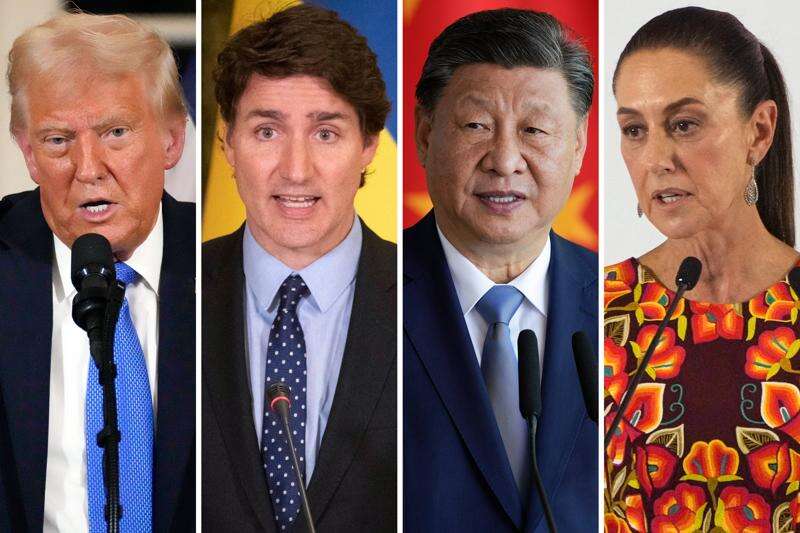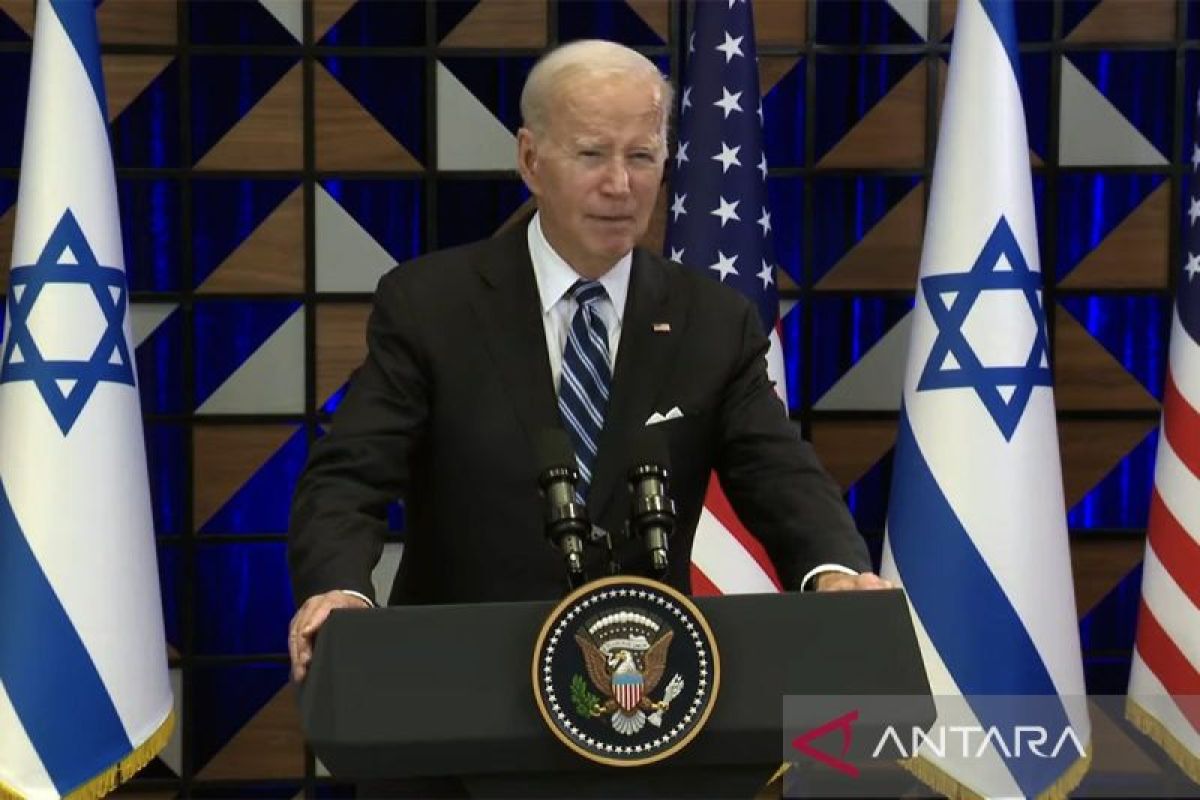Public Opinion In The Netherlands: No Retaliation Against Trump Tariffs

Table of Contents
Economic Resilience and Limited Direct Impact
The Netherlands' muted reaction to the Trump tariffs can be partly attributed to its robust and diversified economy. This inherent economic strength minimized the direct impact of the tariffs, resulting in a less pronounced public response.
The Dutch Economy's Strength
The Dutch economy boasts several features that insulated it from the worst effects of the tariffs:
- Relatively low dependence on sectors heavily impacted by US tariffs: Unlike some agricultural-heavy economies, the Netherlands has a diversified industrial base, reducing its vulnerability to specific tariff targets. The impact on Dutch agricultural exports, for instance, was comparatively limited.
- Strong export diversification to markets beyond the US: The Netherlands is a significant exporter, but its trade relationships extend far beyond the United States. This diversification mitigated the impact of reduced US trade.
- A highly skilled workforce adaptable to economic shifts: The Dutch workforce is known for its adaptability and high skill levels, allowing for quicker adjustments to changing economic landscapes.
Indirect Economic Effects
While direct impacts were relatively minimal, indirect consequences, stemming from global market uncertainty, were felt.
- Impact on Dutch businesses involved in global supply chains: Some Dutch businesses operating within complex global supply chains experienced disruptions and increased costs due to tariff-related bottlenecks. Analyzing the specifics of these impacts is crucial for a complete understanding.
- Minor price increases for consumers: While not widespread, some price increases for specific goods were observed, though the impact on consumer spending remained relatively low.
- Government initiatives to mitigate indirect economic repercussions: The Dutch government implemented various measures to support businesses affected indirectly by the tariffs, further cushioning the blow.
Political Considerations and Transatlantic Ties
The Dutch government's approach to international trade played a crucial role in shaping public opinion. The Netherlands historically prioritizes diplomacy and multilateral trade agreements over immediate, unilateral retaliation.
The Netherlands' Approach to International Trade
The Dutch government's response to the Trump tariffs exemplified its diplomatic strategy:
- Official response focused on diplomacy and collaboration: The government opted for negotiation and collaboration within the EU framework rather than engaging in a tit-for-tat trade war.
- Emphasis on maintaining strong transatlantic relations: Despite the trade disputes, the Netherlands prioritized maintaining its strong political and economic ties with the United States.
- Cooperation within the European Union in addressing trade disputes: The Dutch government worked closely with its EU partners to develop a coordinated response to the tariffs, leveraging the bloc's collective bargaining power.
Public Trust in Government Handling of Trade Issues
Public confidence in the government's handling of the trade dispute also contributed to the lack of widespread protest:
- Public opinion polls revealed relatively high approval: Surveys on public opinion regarding the government's response to the Trump tariffs showed a generally positive sentiment, indicating trust in the chosen strategy.
- Media coverage largely supported the government's approach: The Dutch media, for the most part, refrained from fueling anti-US sentiment and instead focused on the government's diplomatic efforts.
- Perceived effectiveness of the government's strategy: The government's diplomatic approach, while not immediately resolving the issue, was seen by many as effective in mitigating the long-term negative consequences.
Public Perception and Prioritization of Other Issues
The relatively muted public reaction may also be attributed to competing domestic priorities and a potential lack of awareness regarding the intricacies of international trade.
Competing Domestic Priorities
At the time of the tariff imposition, other issues dominated the public agenda in the Netherlands:
- Dominant social and political issues overshadowing trade: Public attention was likely diverted by other pressing domestic concerns, such as housing shortages, healthcare reforms, or other social and political issues.
- Public opinion surveys showed lower prioritization of trade: Surveys at the time indicated that trade policy was not among the top priorities for most Dutch citizens.
- Media agenda influencing public perception: The media's focus on other issues further contributed to a less pronounced public focus on the Trump tariffs.
Limited Awareness or Understanding of Tariffs
The complexity of international trade may have hindered a broader public understanding of the tariffs' implications:
- Assessment of public awareness reveals limited understanding: Many citizens likely lacked a deep understanding of the intricacies of international trade and the impact of tariffs on the Dutch economy.
- Potential for public education campaigns to increase awareness: Increased public awareness campaigns could have improved understanding and potentially fostered a more active public response.
- Media's role in shaping public understanding: The media played a significant role in shaping public understanding – or lack thereof – regarding the tariffs.
Conclusion
This analysis of Dutch public opinion on the Trump tariffs reveals a nuanced situation. The relatively passive response can be attributed to a combination of factors: the resilience of the Dutch economy, the government's pragmatic diplomatic approach, and a public prioritization of other domestic concerns. While indirect economic impacts were present, the lack of widespread public outcry highlights a unique response. Further research into the long-term effects of this approach and its implications for future trade negotiations would be valuable. Understanding Dutch public opinion on Trump tariffs provides crucial insight into navigating global trade disputes effectively. Further research into the long-term implications of this seemingly passive response is vital for understanding the complexities of public opinion in the face of international trade disputes. Analyzing Dutch public opinion on Trump tariffs offers valuable lessons for policymakers navigating similar situations in the future.

Featured Posts
-
 Infografis Menipisnya Harapan Solusi Dua Negara Israel Palestina And Sikap Indonesia
May 18, 2025
Infografis Menipisnya Harapan Solusi Dua Negara Israel Palestina And Sikap Indonesia
May 18, 2025 -
 Emergency Response To Subway Stabbing Near Brooklyn Bridge
May 18, 2025
Emergency Response To Subway Stabbing Near Brooklyn Bridge
May 18, 2025 -
 Fatal Dam Square Car Explosion Police Investigate Possible Suicide
May 18, 2025
Fatal Dam Square Car Explosion Police Investigate Possible Suicide
May 18, 2025 -
 Check Daily Lotto Results For Monday April 28 2025
May 18, 2025
Check Daily Lotto Results For Monday April 28 2025
May 18, 2025 -
 Best Mlb Dfs Picks May 8th 2 Underrated Players And 1 To Sit
May 18, 2025
Best Mlb Dfs Picks May 8th 2 Underrated Players And 1 To Sit
May 18, 2025
